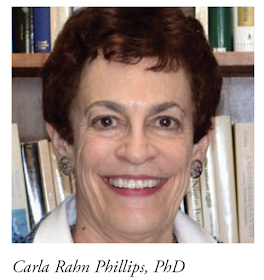
By Carla Rahn Phillips, Chair of the RLS Foundation Board of Directors
For those of us with RLS – and that includes me – it’s easy to think we already have enough challenges without taking on something outside of our personal concerns. Nonetheless, many of us still volunteer our time or money, or both, for causes we believe in.
Although I have struggled with RLS for more than 25 years, I only learned of the RLS Foundation a few years ago. After discovering the Foundation’s website, I became a member to take full advantage of the information that the Foundation provides. Apart from becoming a member, however, it never occurred to me to volunteer my time. That changed due to an unexpected chain of coincidences.
As you may recall, August of 2017 marked a spectacular total eclipse of the sun that was visible across a wide swath of the continental United States. In the run-up to that eclipse, two of my college classmates started organizing a class get-together in Wyoming in the middle of the “path of totality” of the eclipse. It was shaping up to be a major event for our class, with five days of lectures from experts in astronomy and related fields, and the chance to visit with old friends. We were slated to virtually take over a remote mountain resort in Wyoming on the edge of Grand Tetons National Park, far from a major town. My husband and I were excited about attending, but, with my RLS, I began to worry about the meals we would be served. It sounds trivial, but if those meals were to have lots of salt and sugar, I knew I would not be able to sleep at night, because those are two of my triggers for RLS.
I was reluctant to raise my private concerns about the menus, even though attendance, lodging and meals had to be prepaid. Then one of the organizers asked if any of us had any special dietary requests, so I responded that it would be very helpful to have the option of low-sodium food, because I suffered from restless legs syndrome. It turned out that one of the organizers, Lew Phelps, also has RLS, and had already planned for low-sodium meals! Moreover, Lew had been a stalwart member of the RLS Foundation for decades, and in 2017 he had already chaired its Board of Directors for several years. The eclipse event was a great success. Even better, I was able to sleep well thanks to the foresight of Lew and his brother Chuck.
Long before memories of the eclipse faded, Lew suggested that I volunteer for the board of the Foundation. Unlike corporate boards of directors, nonprofit boards almost always serve without pay, and the members of the RLS board pay their own transportation and hotel costs for the annual face-to-face meeting, as well as all their other expenses. In other words, it truly is a voluntary and financial commitment. Several members of the board are busy professionals in healthcare or other fields. Nonetheless, they volunteer their time to the Foundation because of their passion to educate patients and healthcare professionals about RLS, support scientific research into its causes and management, and ultimately find a cure. I had recently retired from the University of Minnesota after four decades as a professor of European history, and Lew persuaded me that it was time to give back. I joined the Board of Directors in 2017 as one of the “civilian” members of that body – that is, a non-healthcare professional. Since then, by attending meetings of the board and its committees – nearly all online or by phone – I have learned an incredible amount about RLS and about the important work of the Foundation. When individuals make a major donation to the Foundation, members of the board thank them personally. As a board member, I have enjoyed writing to let major donors know how much we appreciate their support.
Lew just stepped down as chair of the Board of Directors after a long and distinguished tenure. One of his final acts as chair was to persuade me to succeed him as chair. Although I do not plan to replicate his long tenure, I hope I can make a useful contribution to the Foundation’s work. It’s the least I can do to thank the Foundation for helping me cope with my RLS.
As members, we receive NightWalkers and have access to webinars and the full library of the Foundation’s publications. Thousands of nonmembers also benefit from free information that the Foundation provides, and it costs time and money to produce that information. The best thing that members can do is to persuade everyone they know with RLS to become members of the Foundation, which does so much for us all.
